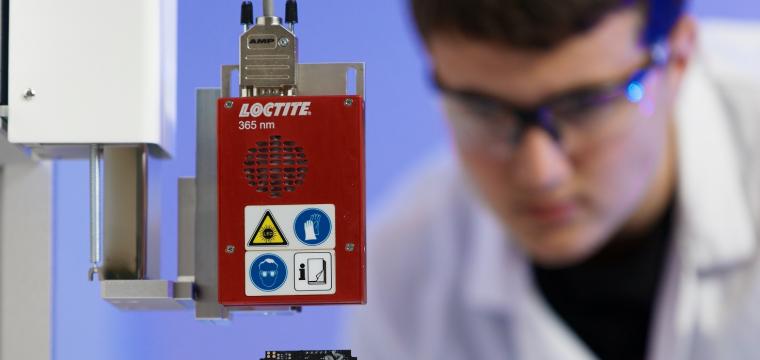We share relevant third party stories on our website. This release was written and issued by Deer Technology.
Port Talbot-based Deer Technology has secured equity investment totalling £1.32 million and announced a £2.5 million contract win with Wave, a leading retailer in the non-household water market .
The Development Bank of Wales led the round with £250,000 of equity taking its total investment in the company to £500,000 in the last two years. Wealth Club, the UK’s largest high net worth investor platform, raised an additional £820,000 to complete the round alongside Deer Technology’s existing angel investors.
Deer Technology was established in 2014 by co-founders Hugh Mort and Garry Jackson who co-invented the LimpetReader™ to take accurate meter readings. The technology provides a new standard in the remote, non-invasive and accurate recording of meter readings for water, electricity, gas and other metered consumption. It can be retrofitted to any traditional analogue meter and uses micro-cameras in sealed housings to capture time-stamped images of the meter display, before sending them via secure data connection to an online portal. This removes the need for costly and unreliable manual reads.
The LimpetReader™ is trademarked in the UK and EU, patented in the UK, and patent-pending in Europe, the US and other jurisdictions. With ten staff, DeerTech uses UK-based companies to manufacture and assemble the products. The £1.32 million investment will be used to fund rapid commercial growth and the installation of 8,500 readers over the next two years for national water retailer Wave. Deer Technology continues to enhance its core technology and products and a next generation slimline LimpetReader™ is scheduled for launch in late 2021.
Chief Executive, Craig Mellor said: “Utility businesses are facing increased governmental and regulatory pressure to provide accurate meter readings and improve their environmental credentials. We’ve spent the time developing and patenting our innovative technology that now provides real-time accurate meter reads to meet regulatory requirements, remotely and at half the cost.
“The continued support of the Development Bank of Wales and their confidence in the team at Deer Technology is very much appreciated. Their early-stage funding gave us the opportunity to complete the product development, secure early installation contracts and provided the platform to secure the confidence of Wealth Club investors.”
Alex Davies, founder and Chief Executive of Wealth Club, said: “We offer experienced investors more compelling and advanced investment opportunities than those normally available through mainstream investment platforms and financial advisers.
“Deer Technology is an exciting young company, presenting investors with the opportunity to co-invest alongside the Development Bank of Wales as a leading equity investor. The scale of the contract win with Wave demonstrates the huge potential that the team has with trials also underway with a number of leading UK organisations and blue-chip companies. Deer Technology is certainly one to watch.”
Col Batten, who led the investment on behalf of the Development Bank of Wales, said: “Regular meter reads are critical to the UK achieving net-zero greenhouse gas emissions by 2050 – otherwise wastage can go undetected and unsolved. As an example, an estimated 15% of UK water meters go unread for more than one year.
“The LimpetReader™ effectively turns any conventional analogue meter into a smart meter. With an estimated 56.4 million utility meters in the UK alone, this is a market that offers Deer Technology as a Welsh business the real opportunity to scale rapidly. Our backing has helped to secure the investment from Wealth Club investors and we have every confidence that the impact of our combined capital funding will make a significant difference to Deer Technology and the local supply chain.”


